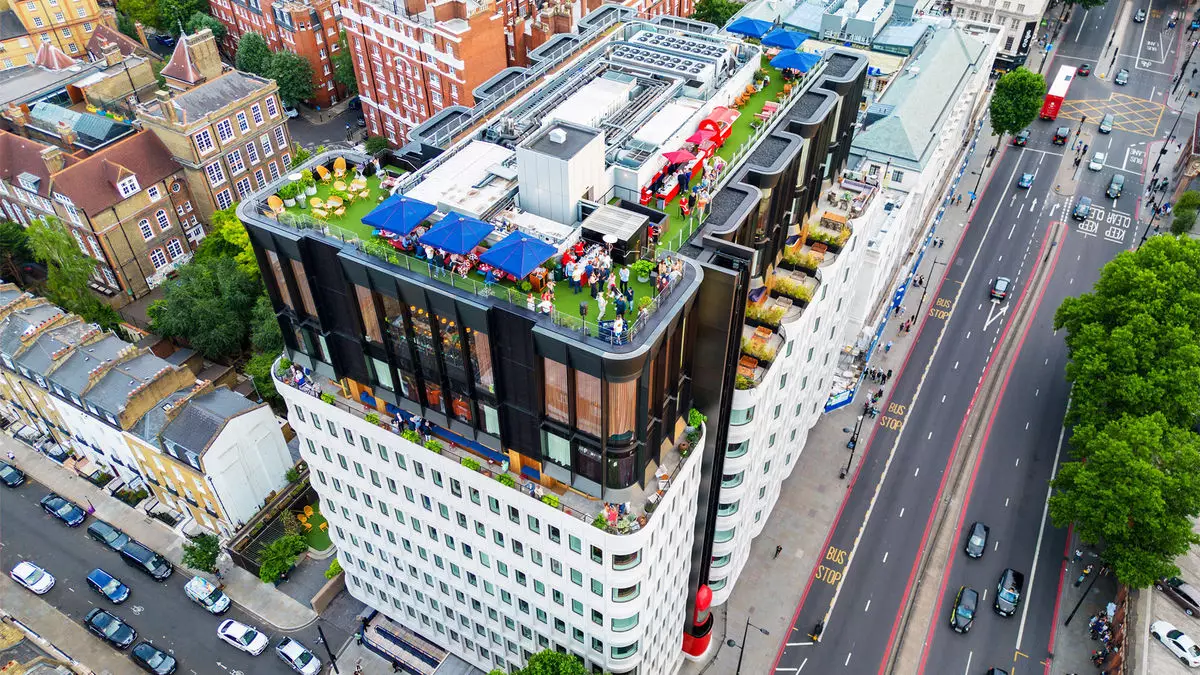The recent acquisition of Standard International by Hyatt signifies a growing trend in the hospitality industry where major hotel chains are expanding their portfolios with boutique additions. This move is part of a larger “brand grab” trend, according to Patrick Scholes, managing director for lodging and leisure equity research at Truist Securities. He explains that big companies are looking to increase their global brand footprint by acquiring smaller, interesting brands like Standard. This not only helps in expanding their reach but also provides the acquired brands with access to a global marketing and reservation network system.
According to Robert Cole, Phocuswright’s senior research analyst for lodging and leisure travel, for a boutique brand to scale, it needs the support of larger hotel chains. This support includes reward programs, centralized purchasing, management efficiencies, and access to established branding networks. The trend of hotel giants acquiring boutique hotels is not only beneficial for the acquiring companies in terms of expanding their portfolio but also for the acquired brands in terms of growth opportunities and operational support.
The hospitality industry has witnessed a series of high-profile acquisitions in the lifestyle and boutique hotel segment in recent years. Companies like Accor, Hilton, and Hyatt have been actively acquiring lifestyle brands to enhance their offerings. For example, Accor finalized a joint venture deal with lifestyle group Ennismore, while Hilton acquired Graduate Hotels and Sydell Group with its NoMad brand. Hyatt, on the other hand, acquired Dream Hotel Group and Me and All Hotels, showcasing its commitment to lifestyle acquisitions.
Hyatt’s acquisition of Standard International is expected to close later this year, with an initial focus on managing, franchising, and licensing contracts for 21 hotels. The acquisition includes The Standard lifestyle brand, Bunkhouse Hotels, Peri Hotels, and The StandardX. The deal is valued at $150 million as a base purchase price, with an additional $185 million over time as more hotels join the portfolio. The acquisition also marks the launch of a lifestyle group within Hyatt, indicating a hands-off approach to integration. Amar Lalvani, executive chairman of Standard International, will lead the group, ensuring the preservation of the brand’s unique appeal post-acquisition.
The trend of hotel giants acquiring boutique hotels reflects a shift in the industry towards embracing brands with unique and unconventional approaches to hospitality. Companies like Hyatt, Hilton, and Marriott are recognizing the value of maintaining a brand’s independence and niche appeal post-takeover. This approach marks a departure from traditional acquisition strategies and highlights a new era of collaboration between major hotel chains and boutique brands.
The trend of hotel giants acquiring boutique hotels is reshaping the hospitality industry by creating opportunities for smaller, independent brands to expand their reach and access resources that were previously out of reach. This trend not only benefits the acquiring companies in terms of portfolio diversification but also allows boutique brands to thrive under the umbrella of established hospitality giants. As the industry continues to evolve, we can expect to see more collaborations and acquisitions that blur the lines between traditional and boutique hospitality offerings.

